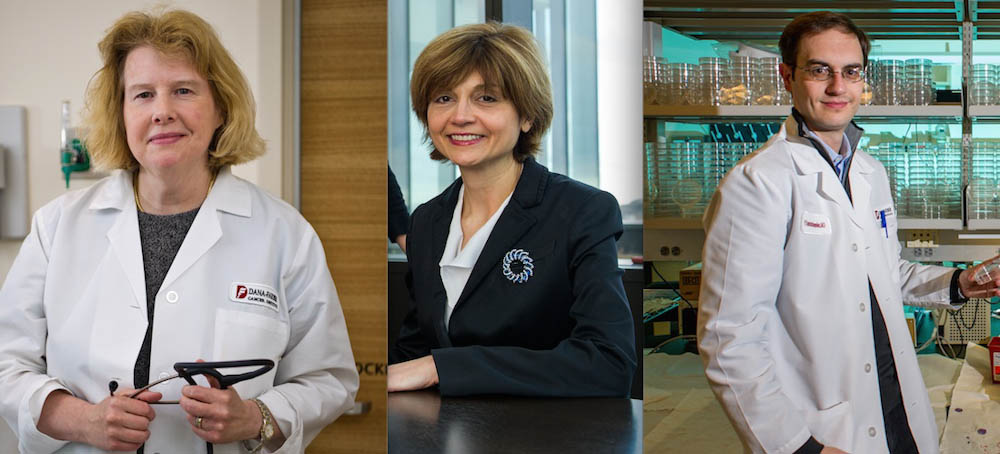Although ovarian cancer is often difficult to treat, research continues to yield results that are improving outcomes and quality of life for many patients.

“Ovarian cancer research and treatment is exciting today because there are so many resources available and we are no longer committed to just the standard chemotherapy,” says Susana Campos, MD, MPH, a gynecologic oncologist with the Susan F. Smith Center for Women’s Cancers at Dana-Farber. “People can really have fruitful lives even if they are living with ovarian cancer.”
Campos recently joined fellow gynecologic oncologist Panos Konstantinopoulos, MD, PhD, for a live video webchat led by Ursula Matulonis, MD, medical director for the Gynecologic Oncology Program at the Susan F. Smith Center.
The chat, which included questions submitted by patients and viewers, covered the latest research developments and treatment options for ovarian cancer, including advances in immunotherapy, PARP inhibitors and genetic profiling.
“I’m very excited about the different combinations of therapies that we are exploring,” Matulonis says. “It only makes sense that we combine these therapies to really tackle the different, innate problems in ovarian cancer.”
“We live in an exciting time in ovarian cancer research with a lot of novel drugs that are being developed,” Konstantinopoulos says. “I think there is a bright future for our patients who fight this difficult disease.”
View a recording of the webchat below:
